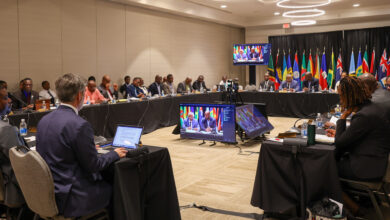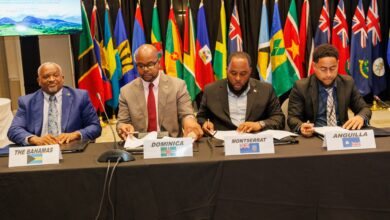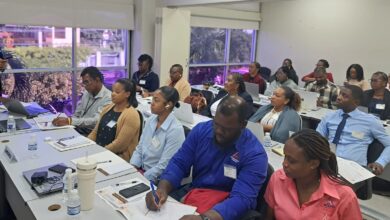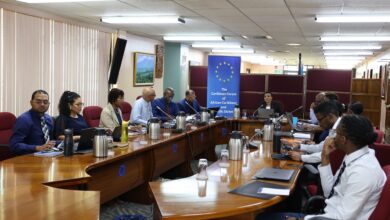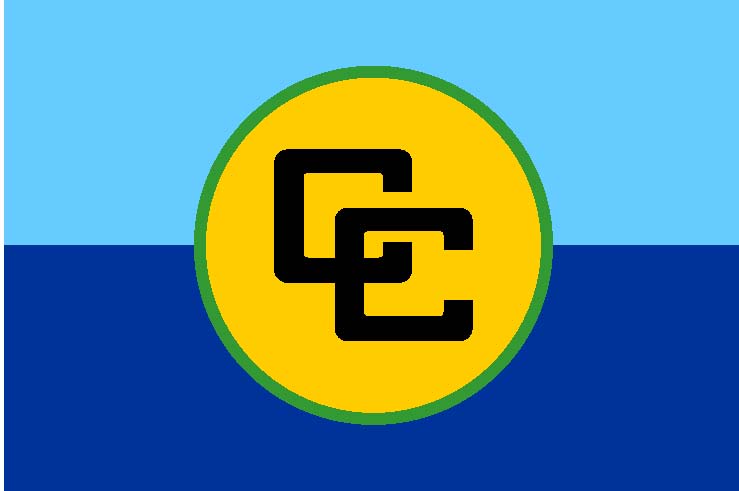Just weeks after Heads of Government of the Caribbean Community (CARICOM) agreed on a formula for the funding of the Caribbean Court of Justice (CCJ), a group of workers from the state sector will gather in Trinidad and Tobago for the final in a series of education workshops for state sector employers who will interface with the Court.
Coordinated by the CARICOM Secretariat and the office of the Attorney-General, Trinidad and Tobago, the workshop will take place from 23-24 July 2002. Two of the presentations, one by the CARICOM Secretary-General, Mr. Edwin Carrington, and another by the Hon. Attorney General of Trinidad and Tobago, Senator Glenda Morean, will take place at the seat of the Court. These presentations will respectively examine the steps towards the establishment of the CCJ and the Appellate Jurisdiction of the CCJ.
Participants for the workshop will come from Guyana, Haiti, Suriname and Trinidad and Tobago. Coordinator at the CCJ Project Coordinating Unit at the CARICOM Secretariat Mr. Sheldon Mc Donald underscored the importance of the workshops, stressing that the identified state actors form an important core of persons who will represent Member States' interest before the Court. In this regard, he believes such persons must be exposed to the many issues involving the establishment and operation of the CCJ. He added that the workshop setting, which brings together participants from selected Member States, allows for a wide level of involvement and cross fertilisation of ideas and thoughts.
The Sectors from which the participants will come are the Attorneys General Chambers, Ministries of Foreign Affairs and Trade, and the Judiciary, particularly the Magistracy and Quasi-Judicial and Administrative Tribunals. Invited officials include Chief Immigration Officers, Senior Court Officials, State Legal Officers in Government Departments, Registrars of Companies and officials dealing with Land Acquisition.
While a number of issues have been identified for presentations and discussion at the workshops, four critical ones are:
The Caribbean Court of Justice and the anticipated impact on the Development of Law and Policy of the Caribbean Community and its Member States; Judicial Tribunals of Regional Integration Groupings and other Dispute Settlement Mechanism in International Trade and Economic Law; Regional experience in Judicial Tribunals and Legal Education into the New Dispensation – Role of the Legal and Wider Academic Community.
The CCJ Coordinating Unit has succeeded in involving leading legal minds in the Region to lend their scholarship to the process. In addition to the CARICOM Secretary-General and the Attorney General, participants at the workshop in Trinidad and Tobago will hear presentations from the Hon. Chief Justice of Guyana, Carl Singh; the principal of the Norman Manley School of Law, Mr. Keith Sobion; and the Minister of Legal Affairs, Trinidad and Tobago, Senator Camilla Robinson-Regis. Presentations will also come from Mr. Duke Pollard, Legal Consultant with the CARICOM Secretariat; Ms. Desiree Field Ridley, Adviser, Single Market and Economy, CARICOM Secretariat; and Mr. Mc Donald.
The workshops form part of the programme of public education on the CCJ which will intensify as the Region moves closer towards the establishment of the Court.

